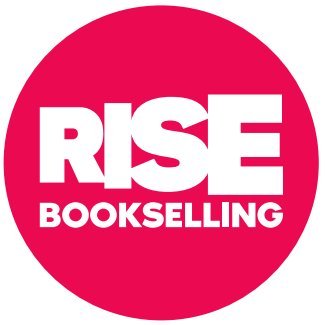 On Monday at the RISE Booksellers Conference in Lisbon, Portugal, booksellers from Guatemala, Switzerland, and Bulgaria discussed how they curate foreign-language books in their bookstores. The session was moderated by Oana Dobosi of La Doua Bufnite bookstore in Timisoara, Romania.
On Monday at the RISE Booksellers Conference in Lisbon, Portugal, booksellers from Guatemala, Switzerland, and Bulgaria discussed how they curate foreign-language books in their bookstores. The session was moderated by Oana Dobosi of La Doua Bufnite bookstore in Timisoara, Romania.
At SOPHOS bookstore, Guatemala City, Guatemala, 85% of book sales are in Spanish while another 15% are in English, according to owner Philippe Hunziker. Just as the store aims to make the overall selection representative of a general bookstore, so it aims to do the same with the 4,000 English-language titles it stocks. These include new releases and English-language books about Guatemala, a very strong section.
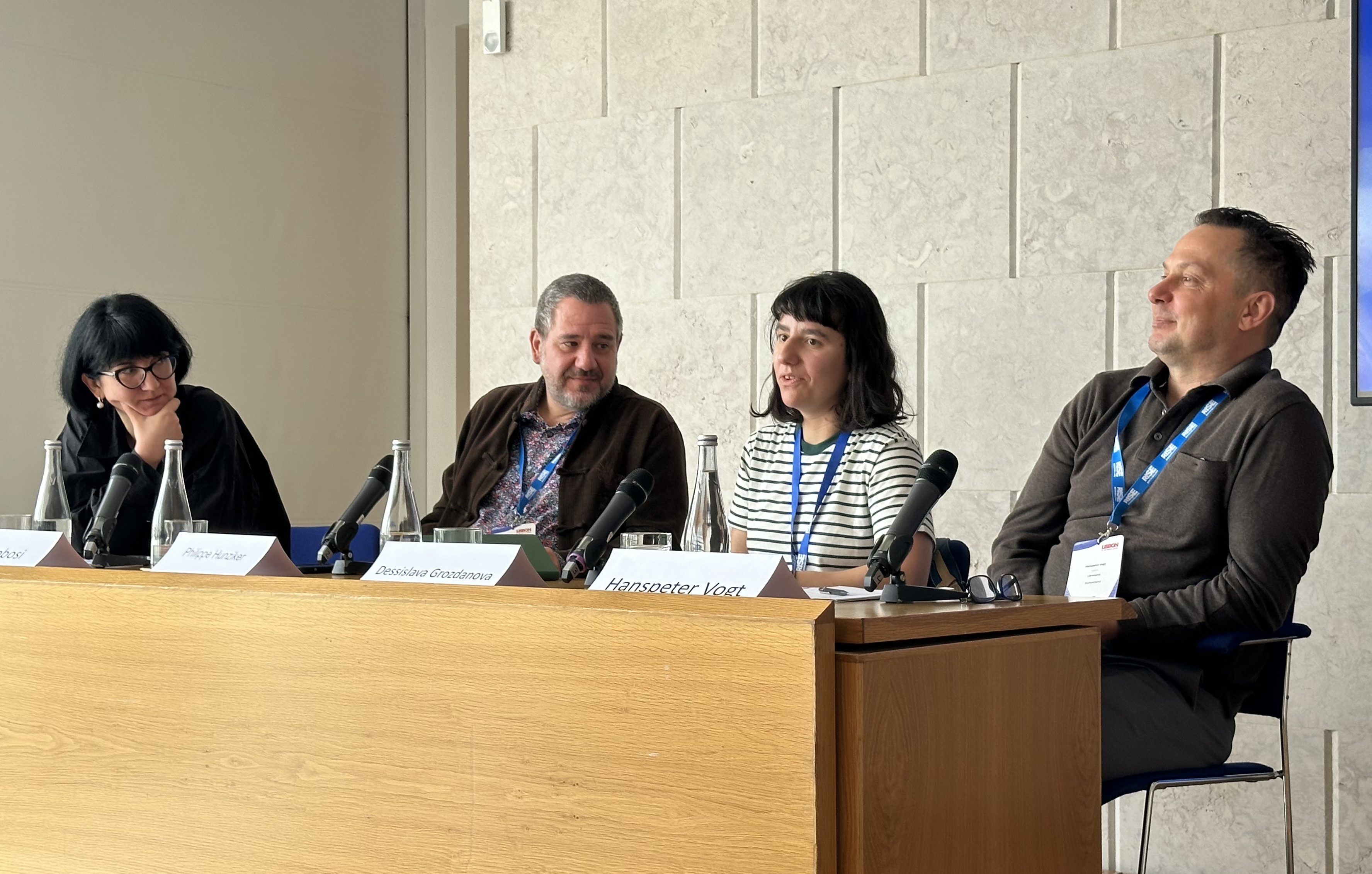 |
| From l.: Oana Dobosi, Philippe Hunziker, Desislava Grozdanova, and Hanspeter Vogt. |
Special orders often come faster from the U.S. than regular shipments from Spanish-language suppliers in Spain, Mexico, and Argentina (there are no book distributors in Guatemala), so while some customers prefer Spanish, they often buy English-language titles instead, especially copies of business books that appear in English before a Spanish translation. Other English-language customers are as varied as the store's Spanish-language customers and include parents who want their children to read in English and "the nostalgic reader" who read English in school and wants to pick it up again.
SOPHOS usually places special orders with Ingram weekly while it places orders from a variety of publishers weekly, monthly, and sometimes every three months. Because books are imported and can't be returned, SOPHOS is careful about quantities, preferring to reorder than make large initial orders on titles. (Hunziker noted that when reading book catalogs, "the reader and bookseller in you wants to order everything," so it's important to set and keep to a budget.) In 2011, SOPHOS arranged to print a Spanish-language title in Guatemala rather than import it (after its original English-language edition did extremely well). That led the store to create its own publishing house, which has published nearly 40 titles in the past dozen years.
The Fox Book Cafe in Sofia, Bulgaria, is a relatively small bookstore with a large selection of children's titles and about half its stock in English, according to Desislava Grozdanova. The most popular English-language titles tend to be the kinds of books not usually translated or published originally in Bulgarian, including graphic novels and manga as well as LGBTQ+ books. "Authentic English literature" is also popular, and sometimes visitors to Bulgaria "buy fiction for the plane ride back."
Fox began buying from distributors in Bulgaria, but Grozdanova has made connections with English-language publishers--mainly in the U.K. because delivery is easier--and it allows the store to "pick our own books and not rely on someone having certain stock." She works with sales reps and wholesalers and goes to the major international book fairs, including London, Frankfurt, and Bologna.
Grozdanova called budgeting the most challenging part of curating English-language books. Fox booksellers feel comfortable buying English-language titles since they're all fluent in English. ("I most enjoy picking books I really like," she said. "It gives me a sense of freedom.")
LibRomania, Bern, Switzerland, was founded in 1986 by a Spanish-language teacher and originally specialized in Spanish-language books, according to Hanspeter Vogt. The store has since expanded to include German, French, Italian, and English and is a university bookshop, too. LibRomania supplies books to schools in a variety of languages and serves as a distributor of Spanish-language titles to other Swiss bookstores. About half of its customers are native speakers of the titles they buy, and many of the others are either foreign-language teachers or students of Spanish and English.
The biggest problem for LibRomania in buying books from abroad stems from Switzerland not being a member of the European Union, resulting in all kinds of taxes and paperwork, Vogt said. LibRomania works with an international book service and has a warehouse in France, where it picks up titles weekly. For English-language books it works mostly with U.K. publishers and wholesalers, not so much those in the U.S., because the British have gotten "better and better with books." LibRomania buys some books in small quantities from around the world, and Vogt noted that it's "easier to get books from China than from Brazil or Mexico."
---
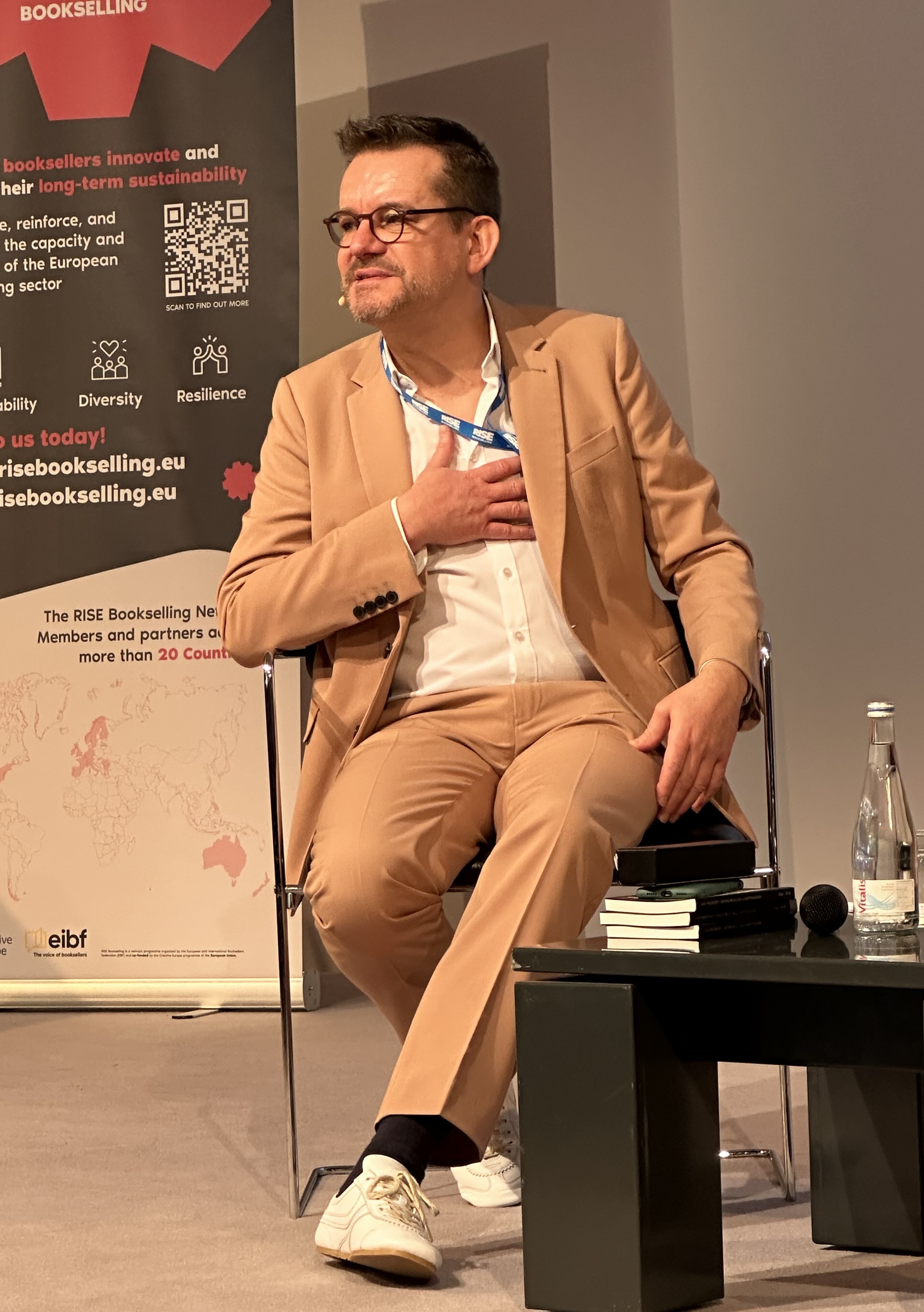 |
| Bart Moeyaert |
Monday morning's author keynote featured Bart Moeyaert, the popular Belgian author whose work includes prose and poetry, songwriting, illustrations, and more. Although he was the 2019 winner of the Astrid Lindgren Memorial Award, which honors children's and YA authors, illustrators, and others, Moeyaert doesn't consider himself "just" a children's book writer and illustrator and dislikes the traditional view that "small books without illustrations" are for adults, and "large books with illustrations" are for children. He commented: "When someone asks me if I am a children's book writer or poet, I say, 'No.' I always say something different. I think that's the way to change the world: Be stubborn."
Interviewed by Jan Peter Prenger, chief buyer of Libris Blz and chairman of the advisory board of the Dutch Booksellers Association, Moeyaert talked about the importance of his upbringing and family in his writing. (Being the youngest of seven boys made for an unusual childhood.) "I stick to my family," he said, noting that his parents died recently ("death is something with all of us"). Luckily, he continued, his parents' different approaches to life helped make him the creative person that he is. His mother had deep emotional intelligence and gave him the freedom to be his own person while his father was "severe," believing things had to be done in a single, logical way. "Putting those two together gave me everything I needed."
---
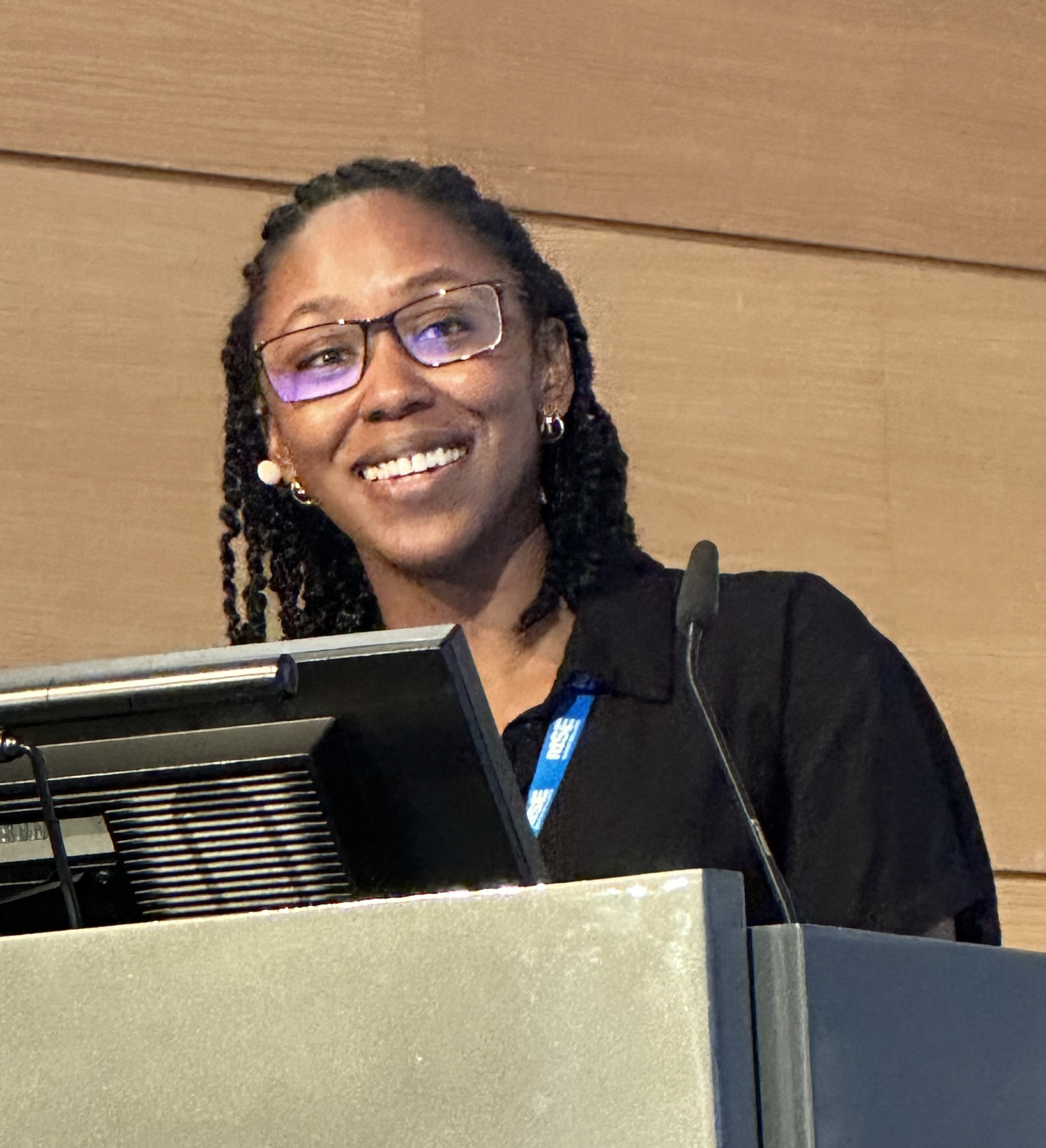 |
| Natasha Brown |
Another author keynote featured Natasha Brown, whose debut novel, Assembly, was published in 2021 and was shortlisted for the Folio Prize, the Goldsmiths Prize, and the Orwell Prize for Fiction. In addition, she was named one of Granta's Best Young British Novelists and one of the Observer's Best Debut Novelists.
Acknowledging her work in financial services, her studies in math, and love of "data points," Brown gave an amusing and highly detailed statistical analysis and overview of something that is quite personal for someone whose first novel appeared recently: "the problem of second novels." With graphs and charts and a laser pointer, she outlined trends in intervals between first and second novels of relatively recent authors, the long gaps between some famous authors' first and second novels, and noted that among authors who essentially wrote only one novel are Nora Ephron (Heartburn), Ralph Ellison (Invisible Man), Oscar Wilde (The Picture of Dorian Gray), Emily Brontë (Wuthering Heights), and Harper Lee (To Kill a Mockingbird).
Natasha Brown's most important data point: her own second novel, Universality, will be published in March 2025. --John Mutter
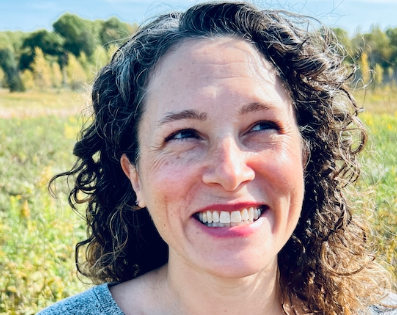 Knowing that booksellers across the country are excited about our new book is a huge honor, and I am so grateful for everything independent bookstores do for all of us who love books."
Knowing that booksellers across the country are excited about our new book is a huge honor, and I am so grateful for everything independent bookstores do for all of us who love books."








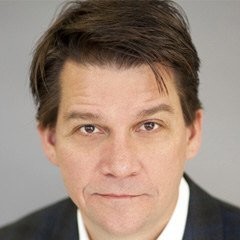
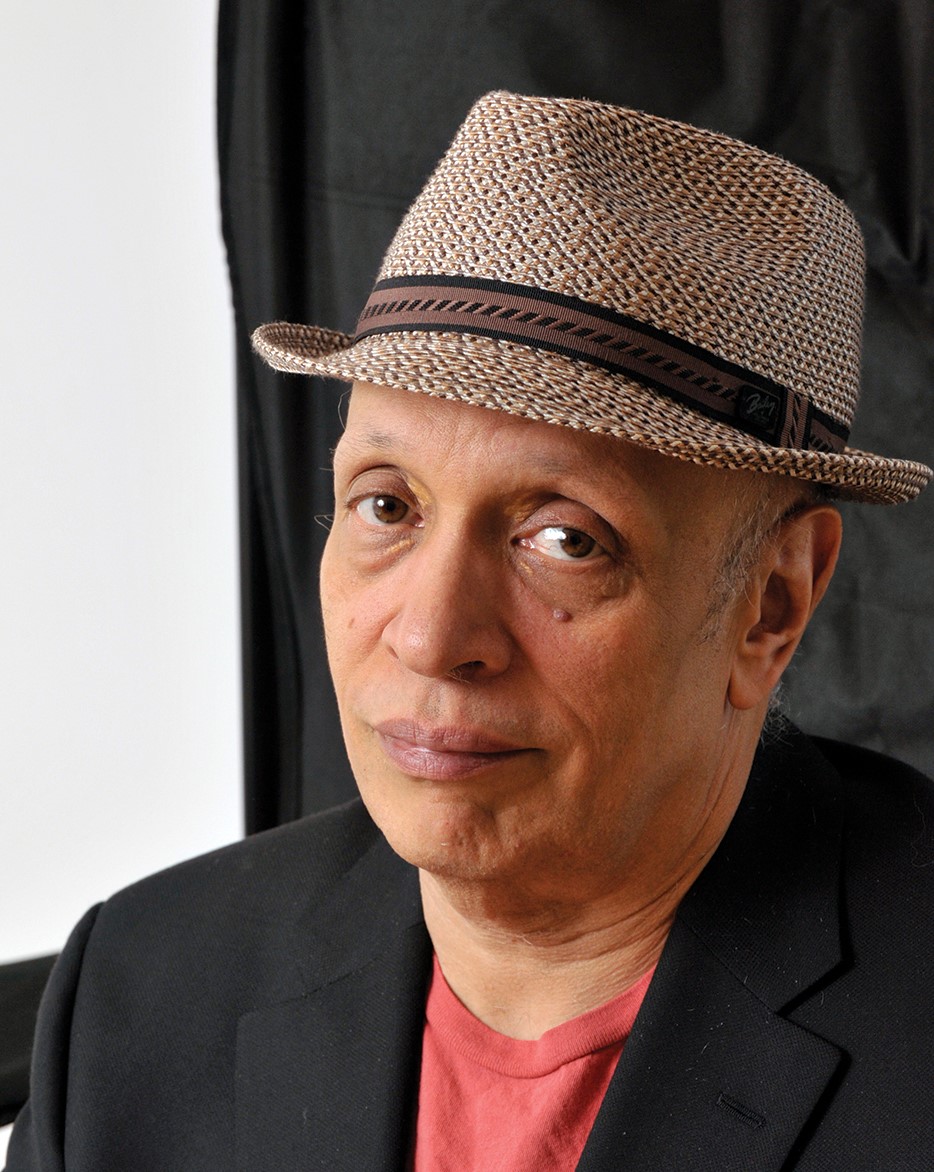 Walter Mosley will receive the Industry Champion Award, which honors an individual whose efforts have advanced the publishing industry as a whole. BISG said, "Best known as the award-winning author of more than 60 works of fiction and nonfiction, including the bestselling series featuring private detective Easy Rawlins, he is also the founder of the Publishing Certificate Program at the City University of New York. His efforts to broaden participation in the industry--particularly by writers of color--led BISG's board to select Mosley for this honor."
Walter Mosley will receive the Industry Champion Award, which honors an individual whose efforts have advanced the publishing industry as a whole. BISG said, "Best known as the award-winning author of more than 60 works of fiction and nonfiction, including the bestselling series featuring private detective Easy Rawlins, he is also the founder of the Publishing Certificate Program at the City University of New York. His efforts to broaden participation in the industry--particularly by writers of color--led BISG's board to select Mosley for this honor."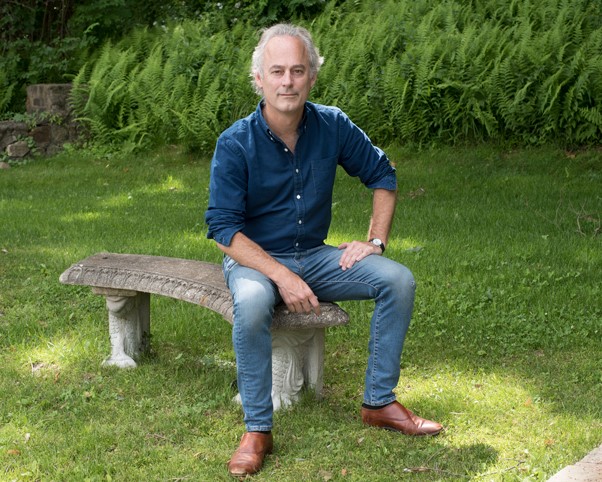 Towles is the author of Rules of Civility, A Gentleman in Moscow, and The Lincoln Highway, and his short stories have appeared in the Paris Review, Granta, British Vogue, and Audible Originals. Later this month an eight-hour miniseries of A Gentleman in Moscow starring Ewan McGregor will air on Showtime and Paramount+, and his new book, Table for Two: Fictions, a collection of six short stories and a novella, will be published by Viking on April 2.
Towles is the author of Rules of Civility, A Gentleman in Moscow, and The Lincoln Highway, and his short stories have appeared in the Paris Review, Granta, British Vogue, and Audible Originals. Later this month an eight-hour miniseries of A Gentleman in Moscow starring Ewan McGregor will air on Showtime and Paramount+, and his new book, Table for Two: Fictions, a collection of six short stories and a novella, will be published by Viking on April 2.
 On Monday at the RISE Booksellers Conference in Lisbon, Portugal, booksellers from Guatemala, Switzerland, and Bulgaria discussed how they curate foreign-language books in their bookstores. The session was moderated by Oana Dobosi of La Doua Bufnite bookstore in Timisoara, Romania.
On Monday at the RISE Booksellers Conference in Lisbon, Portugal, booksellers from Guatemala, Switzerland, and Bulgaria discussed how they curate foreign-language books in their bookstores. The session was moderated by Oana Dobosi of La Doua Bufnite bookstore in Timisoara, Romania.


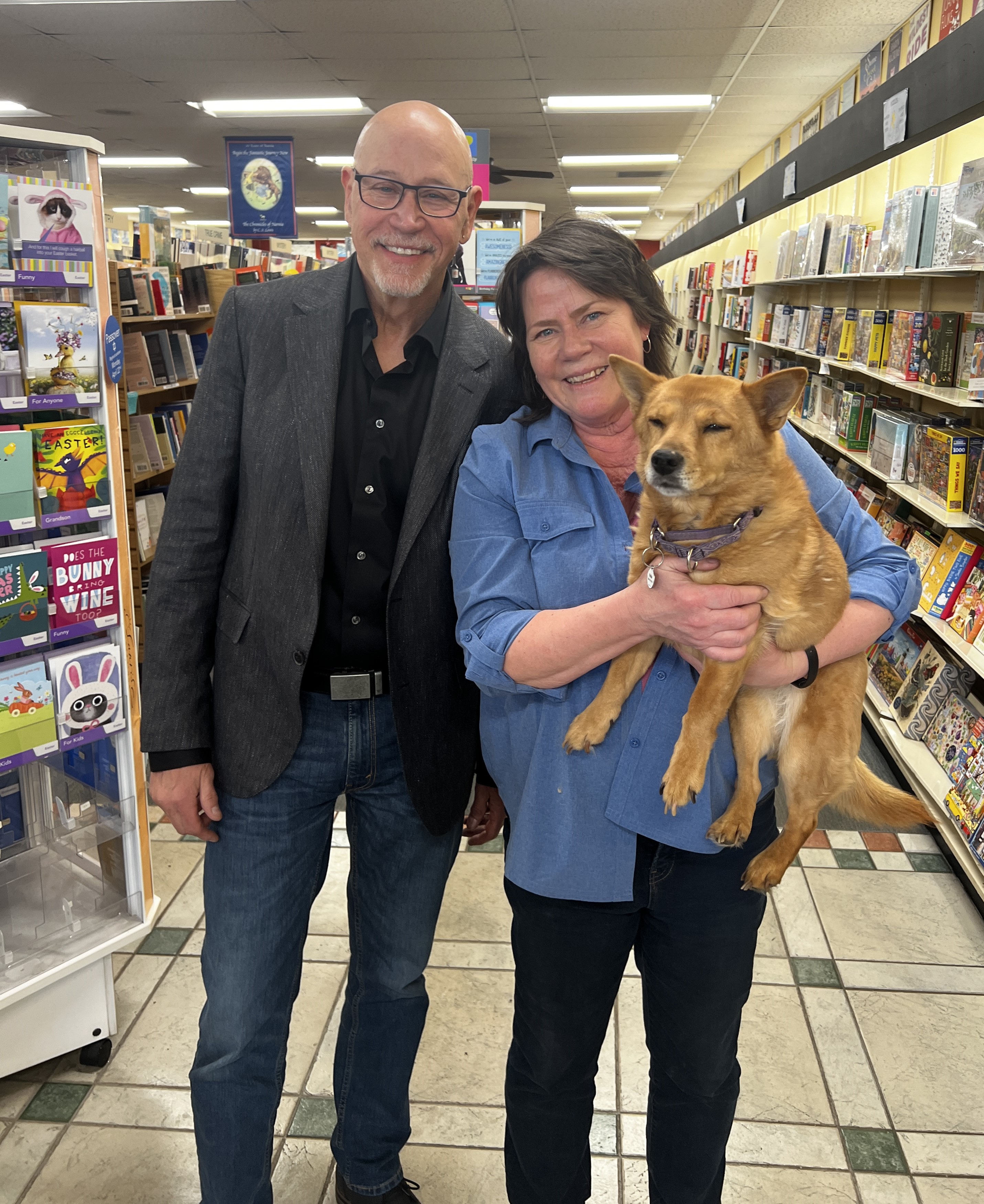 David Wroblewski, author of The Story of Edgar Sawtelle and the forthcoming novel Familiaris (Blackstone, June 4), posed at Charlotte, N.C.'s
David Wroblewski, author of The Story of Edgar Sawtelle and the forthcoming novel Familiaris (Blackstone, June 4), posed at Charlotte, N.C.'s  "Ever wonder what booksellers do when they're not reading? One of them creates
"Ever wonder what booksellers do when they're not reading? One of them creates 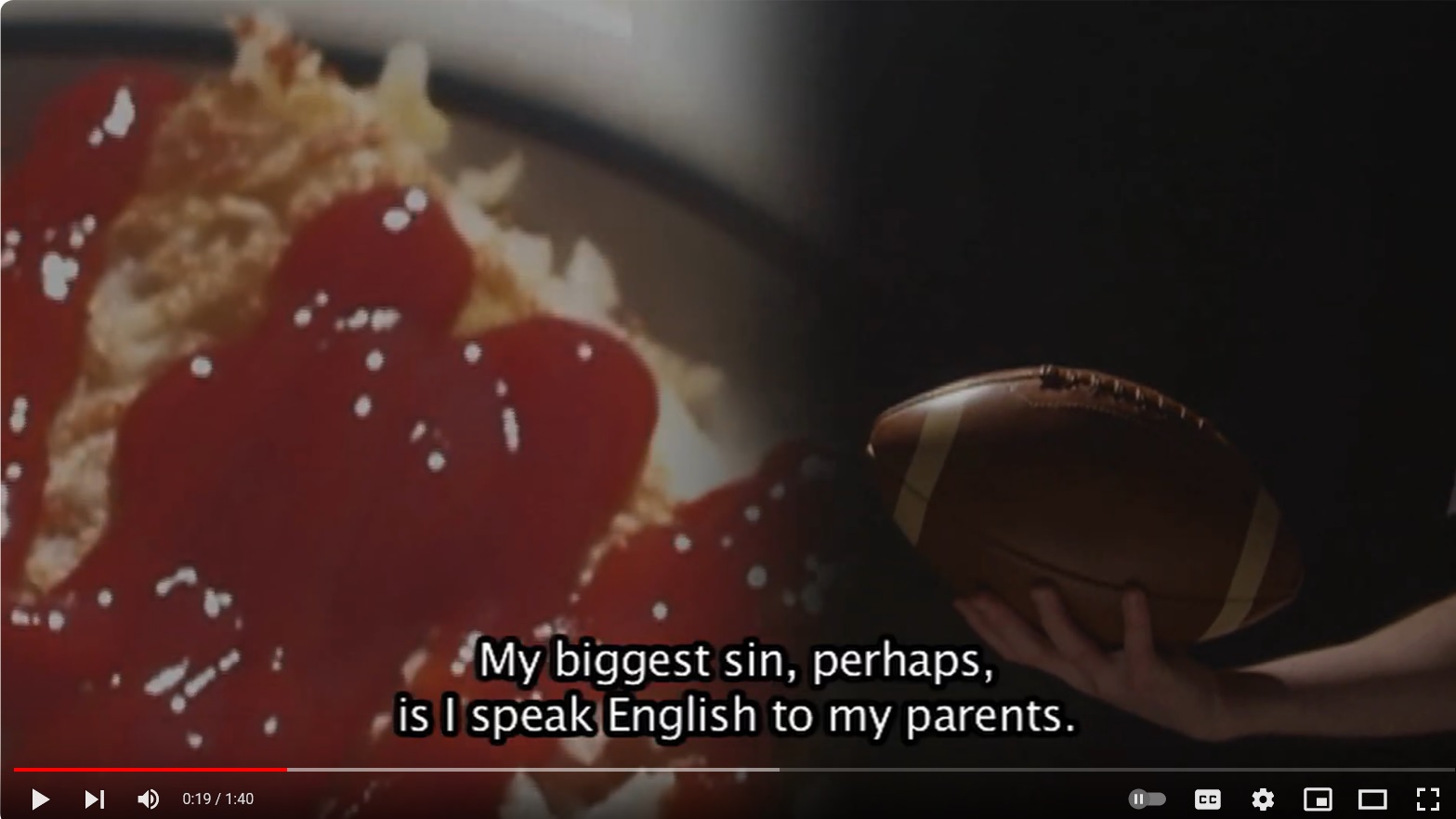 Bad Mexican, Bad American: Poems
Bad Mexican, Bad American: Poems R.O. Kwon's second novel, Exhibit, is a searing study of art, desire, and bodily and intellectual freedom. Northern California photographer Jin Han earned notoriety for her triptychs depicting "religious people in states of worship." Given her lapsed Christian faith and her inclusion of self-portraits copying her subjects' poses, she has received hate mail and a boycott. This causes Jin to question her own motives: "did I, by reviving what I grieved, risk indulging in tragic kitsch?" Interspersed in the narrative are anguished letters to a God she no longer believes in ("Dear made-up Lord, I lived in pursuit of You...").
R.O. Kwon's second novel, Exhibit, is a searing study of art, desire, and bodily and intellectual freedom. Northern California photographer Jin Han earned notoriety for her triptychs depicting "religious people in states of worship." Given her lapsed Christian faith and her inclusion of self-portraits copying her subjects' poses, she has received hate mail and a boycott. This causes Jin to question her own motives: "did I, by reviving what I grieved, risk indulging in tragic kitsch?" Interspersed in the narrative are anguished letters to a God she no longer believes in ("Dear made-up Lord, I lived in pursuit of You...").
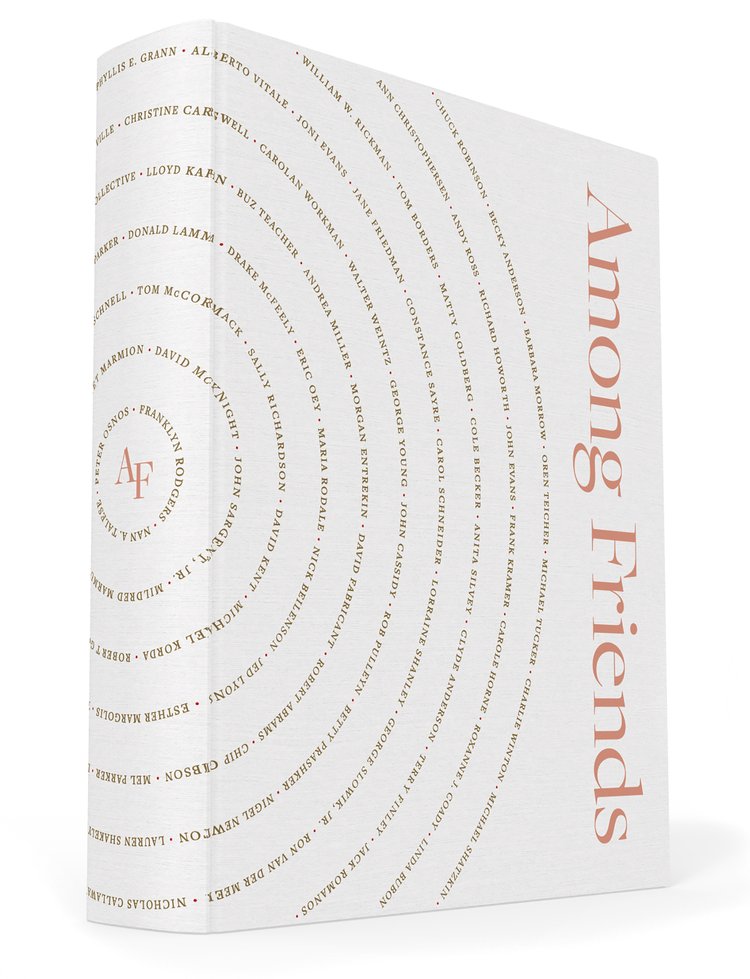 Among the many contributors to
Among the many contributors to